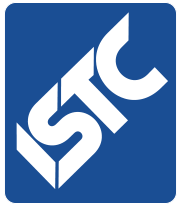The ISTC Code of Professional Practice states that every ISTC member is committed to maintaining and updating their knowledge and skills. For this reason, the ISTC introduced its Continuous Professional Development (CPD) Policy in 2013, which formalises this commitment.
Under our CPD policy all learning, whatever form it takes, is recognised as valid for your CPD.
We expect all ISTC members to undertake CPD activities and to maintain a reflective record of their CPD. Undertaking CPD activities and maintaining a CPD record is a mandatory requirement for all ISTC Fellows (other than Honorary Fellows or Retired Fellows) who wish to retain to retain their membership status as Fellows.
The ISTC CPD Framework provides guidance for Members and Fellows on recording the continuing professional development (CPD) that we undertake as professional technical communicators. We have also provided some sample CPD records for your guidance.
What do you get out of it?
Undertaking CPD means that being a Fellow of the ISTC has additional significance. ISTC Fellows can say “As a Fellow of the ISTC, I am committed to maintaining my professional competence and keeping my skills up-to-date, and I can provide evidence that I have done so.”
For all ISTC members, a CPD record is a valuable resource, as it is a summary of the learning you have done in a format that can be used when asked if you have experience in a particular area. It can add weight to an entry on a CV that mentions you worked in a particular industry or have used a particular tool or technique. The information in your CPD record can also be useful during performance reviews or appraisals, helping to guide the discussion towards your professional development.
What counts as valid CPD?
Some of us prefer the more formal discipline of academic study, or training courses in a particular area. Others prefer to research, experiment and investigate, either alone or with others.
We are all learning all the time, whether we realise it or not. From the reflection on the project that didn’t go quite as planned to the investigation of a new tool or technique, much of our learning is informal, gained ‘on the job’. That doesn’t mean it isn’t valuable.
We recognise any activity that results in you learning something relevant to your role as valid CPD.
How can you demonstrate that you have learnt something?
By writing a short piece of reflective writing that explains what you learnt, how you learnt it and – if you can – how you intend to use what you’ve learnt.
What you learn doesn’t have to be completely new to you – you may have refreshed or updated your knowledge, or you may start looking at something from a slightly different perspective. That is learning.
How can you demonstrate that your learning is relevant?
Sometimes relevance can be inferred from the nature of the learning activity. Other activities need the links between the learning and the practice to be made explicit.
For example, you may write product training materials for accounting software and you are struggling because you do not understand the rules around VAT calculation. You attend a workshop on VAT to help you.
This counts as valid CPD as long as your reflective record for this activity explains how you have used this learning in your work as a Technical Communicator. You may like to record the thoughts that go through your mind on how you can better explain this others as you learn about it yourself.
How much CPD should you do?
An average of 30-points per year in any 3-year period, with a minimum of 10 points per year. A point is roughly equivalent to an hour of CPD – but it is not an exact correlation as some learning involves minimal ‘activity’ (reading, researching, studying) but a lot of thinking.
We have provided a CPD Framework, which lists a number of activities with suggested points. These are for guidance, and you may feel that you want to claim more than those specified for some activities. That is fine – you can use your piece of reflective writing to justify your claim.
What evidence do you need?
You may wish to keep some evidence of your CPD activity:
- Your personal reflective record is always the best evidence you can have. It is good practice to complete your personal record as soon as possible after the CPD activity. Your reflective record about each CPD activity describes what you learnt, how you learnt it and what you intend to do next.
- If you attend events that issue certificates of attendance, keep them.
- If you have paid for training, keep the invoice or receipt.
- If you have created something, add it (or an extract) to your portfolio.
If you have provided other evidence, your reflective record can be brief. If the reflective record is the only evidence of your learning activity, you may wish to go into more detail to show what you have learnt and possibly how you intend to apply it.
What do we mean by ‘reflective writing’?
Reflective writing is a very personal style of writing. Some see it almost like writing in a diary: a learning journal.
To help, we have compiled some sample CPD claims from four very different personas over a 2-year period and created short examples of reflective writing for two learning activities for each of them.
An alternative option is to use a blog to record the reflective element, using tags to identify posts that specifically relate to ISTC CPD requirements. You might also choose to use a spreadsheet to track the points element of your CPD activities.
For more suggestions about reflective writing you may wish to look at some online resources provided by UK universities.
